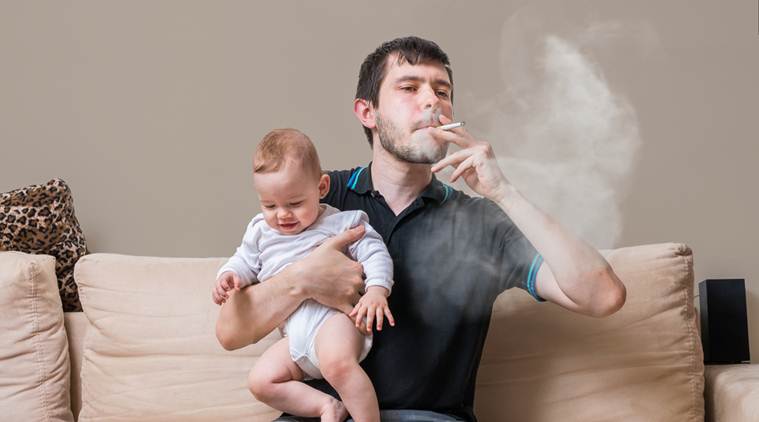Do children inherit drug protection from parents exposed to nicotine or drugs?


Men who smoke cigarettes are far more likely to have children with an inherited tolerance to drugs, a new study claims. Scientists warn this could mean smokers’ children could be unresponsive to certain antibiotics or even chemotherapy.
“Children born of fathers who have been exposed to nicotine are programmed to be not only more resistant to nicotine toxicity, but to other chemicals as well,” said Dr. Rando, professor of biochemistry & molecular pharmacology. “If a similar phenomenon occurs in humans, this raises many important questions. For example, if your father smoked does that mean chemotherapy might be less effective for you? Are you more or less likely to smoke? It’s important to understand what information is specifically being passed down from father to offspring and how that impacts us.”
The study, conducted at the University of Massachusetts Medical School, used male mice and exposed them to nicotine before reproducing.
Nicotine is a commonly used drug in humans, and acts by binding to a specific molecular receptor.
Providing male mice with access to nicotine, researchers were curious whether their offspring were more or less sensitive to the drug, and whether the offspring response was specific to nicotine or extended to other molecules.
The study found that mice with fathers exposed to the nicotine equivalent of a habitual smoker inherited epigenetic changes that gave them higher chemical tolerance and allowed them to clear drugs from their system more efficiently, possibly by helping their livers metabolize drugs better. In addition to nicotine, these mice also had enhanced protection from the toxicity of cocaine.
Several studies have linked paternal diet to metabolic changes in offspring, while others link paternal stress to anxiety-like behaviors in the next generation.
However, it’s remained unclear in these studies whether the offspring response is specific for the paternal exposure, or whether it is a more generic response to a father’s overall quality of life.
‘This demonstrates that ‘dad’ paints with very broad brush strokes,’ Dr Rando said.
The next step for Rando and colleagues is to determine how many channels of information are being passed down from parent to offspring. “We now know that this information is relatively nonspecific,” he said. “But is dad only telling us, on a scale of 1 to 10, that his life was good or not, or is he telling us four or five things broadly about the amount of food, level of stress and degree of chemical exposure?”
“There are obvious reasons to be interested in whether this type of effect also happens in human beings, but given the differences between mice and humans in their metabolism of nicotine, it will need to be tested rigorously in future studies of human populations,” added Rando in a statement.
Prepared by
LatinAmerican Post | Luisa Fernande Baes





